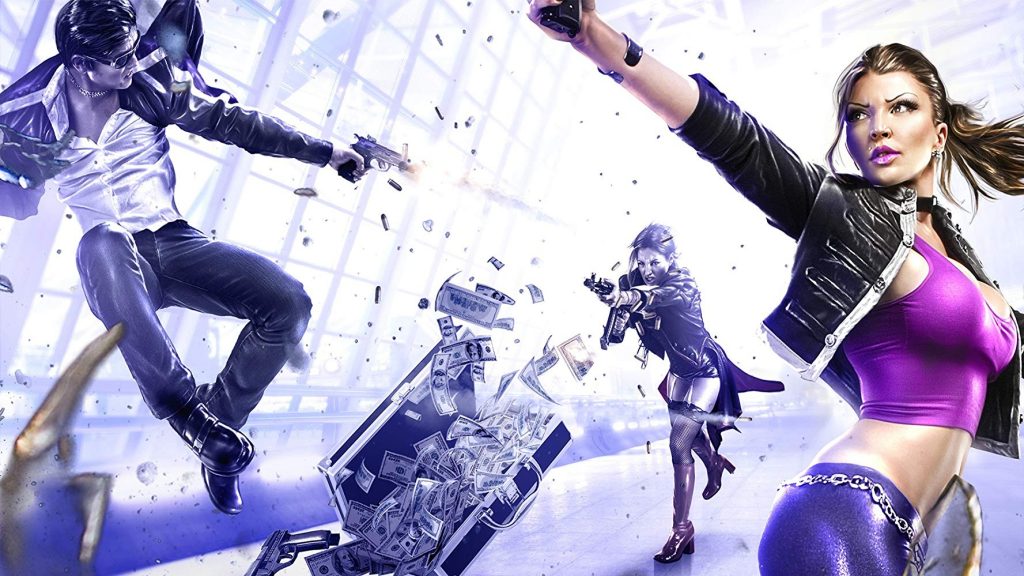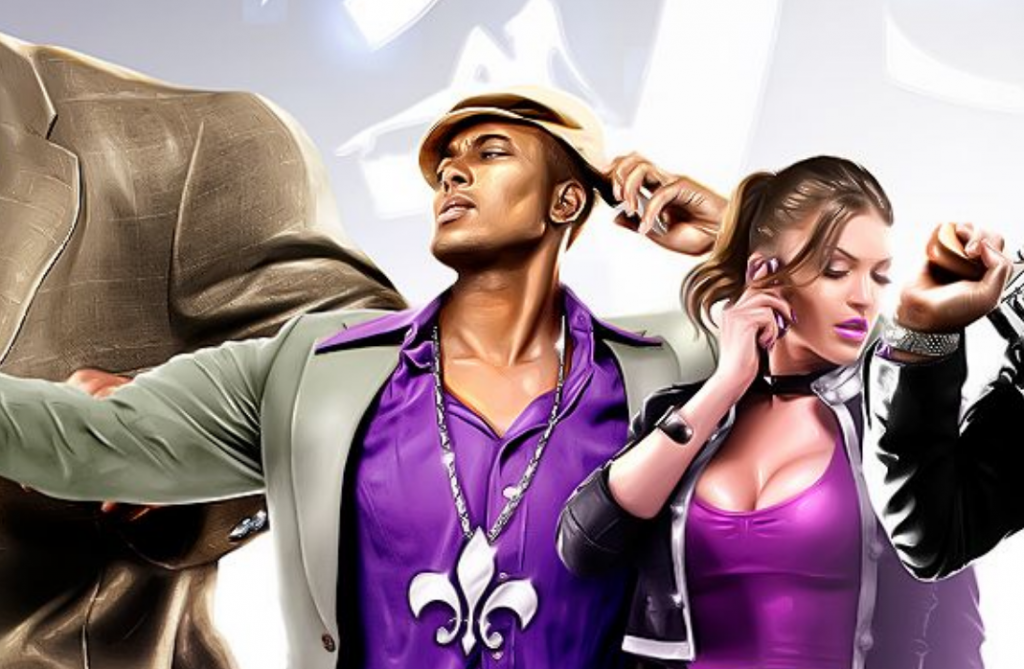
Saints Row kicks toxic masculinity to the curb more than once
Saints Row is one of my favourite game series. It’s got absolutely everything that I love: cute companions, fast cars, a campy storyline, and some of the most innovative weapons of all times. Yes, that’s right, I’m talking about the humongous dildo sword.
For people who know me, this may come as a shock. Saints Row has often been compared – rather unfairly in my opinion – to Rockstar’s own action-adventure series, Grand Theft Auto. As someone who has never been into the whole hyper-violence scene that’s 99% the heart of GTA, Saints Row would not be a game that many would think I’d be into.
But in my very humble opinion, Saints Row is 100x better than GTA in every single way that matters to me. Women are handled in a much more respectful way, the LGBT representation is pretty good, gender and race along with character customization is, dare I say, godlike, and at least half of the male cast are not drowning in toxic masculinity.
Saints Row wasn’t always like this, of course. The second game is rife with casual racism, misogyny and homophobia, but Saints Row: The Third ended up being a turning point for the better. Women were more involved within the story’s plot and the men were actually allowed to be something more than homicidal, gun-happy gang members. Whether because of Anita Sarkeesian rightfully criticizing the second game or not, remains up to your own opinion. Of course, Saints Row: The Third was far from perfect, and it isn’t completely free from criticism, but it was most certainly a step in the direction for a ton of the characters within the series, as well as a more cohesive, mature story.

In Saints Row: The Third, the Saints suffer the loss of one of their dearest friends. Grief isn’t new in Saints Row, but the way it is handled here is wildly different from the first two games. Shaundi, a key character in all games but the first, is the first to express her grief by wanting to brutally murder those who took her friend away. Because obviously.
The male characters, as well as the protagonist, do attempt to stop her but ultimately falls short when she puts them in their place and calls them out for trying to stop her grieving. She takes command of her own decisions, and in doing so, breaks away the role of a character who is stifled by the men around her and becomes the driving force behind the Saints vengeance. It also drives the male characters around her, particularly Pierce and the Boss (who can also be female) to progress their own grief. This isn’t as touched upon in the third game as it is the fourth, but it’s a nice step forward in a game that many are still willing to call a GTA clone.
One of the characters who stands out the most to me as being a man who isn’t afraid to break away from the toxic masculinity standard is Pierce Washington.

Pierce is one of my favourite characters, and not just because he has an amazing singing voice either. Pierce is the Boss’ right-hand man during the third game, and while he can be selfish at times, Pierce is a character who doesn’t perceive anyone as lesser than him – a trait the Saints are incredibly low on.
Before I said that Pierce wasn’t my favourite just because of his singing, but that’s actually a tiny lie. Pierce is a great singer, and Boss and he sing some of the best songs known to man and have done since Saints Row 2. One of the greatest parts of singing with Pierce is that it’s one of those moments that makes you feel truly immersed in this crazy world. The next greatest moment, however, is that Pierce changes the pronouns depending on your character’s voice. Pierce does this regardless if the song is romantic or not, and honestly? It makes Pierce’s presence a comforting one.
In a setting and genre that truly demonizes anything that isn’t considered typically manly – queer relationships being one of them – it was downright beautiful to have a character around that didn’t quite fit that stereotypical mould. It was even better for Pierce, as well as old-time favourite Johnny Gat, to continue to break away from these tropes in Saints Row 4 and become characters that weren’t defined by the violence or glamour in their life, but their wit and open-mindedness.
Hell, even though it was treated like a parody of Mass Effect 2, you’re able to have a ‘gay romance’ with Pierce, Johnny, and Matt if you so wish it. You’re never ridiculed for it either, and it just feels good to be included in a game that could very easily demonize your existence.
You may be thinking ‘hey, this is quite the reach Aimee’ and that’s incredibly valid, but I truly believe that Saints Row has grown so much as a series and that the fact that its male cast continues to be assholes, but not toxic assholes, is one of my favourite parts about it.
You can get Saints Row: The Third on PS3, PC and the Switch, whereas Saints Row 4 can be found on the PS4 and PC. If you haven’t played them yet then don’t waste time, go do it. You won’t regret it at all.






I agree, I love Saints Row series much more than GTA, loved SR2 and SR3 the most, but SR4 is also great in it’s own unique way xD